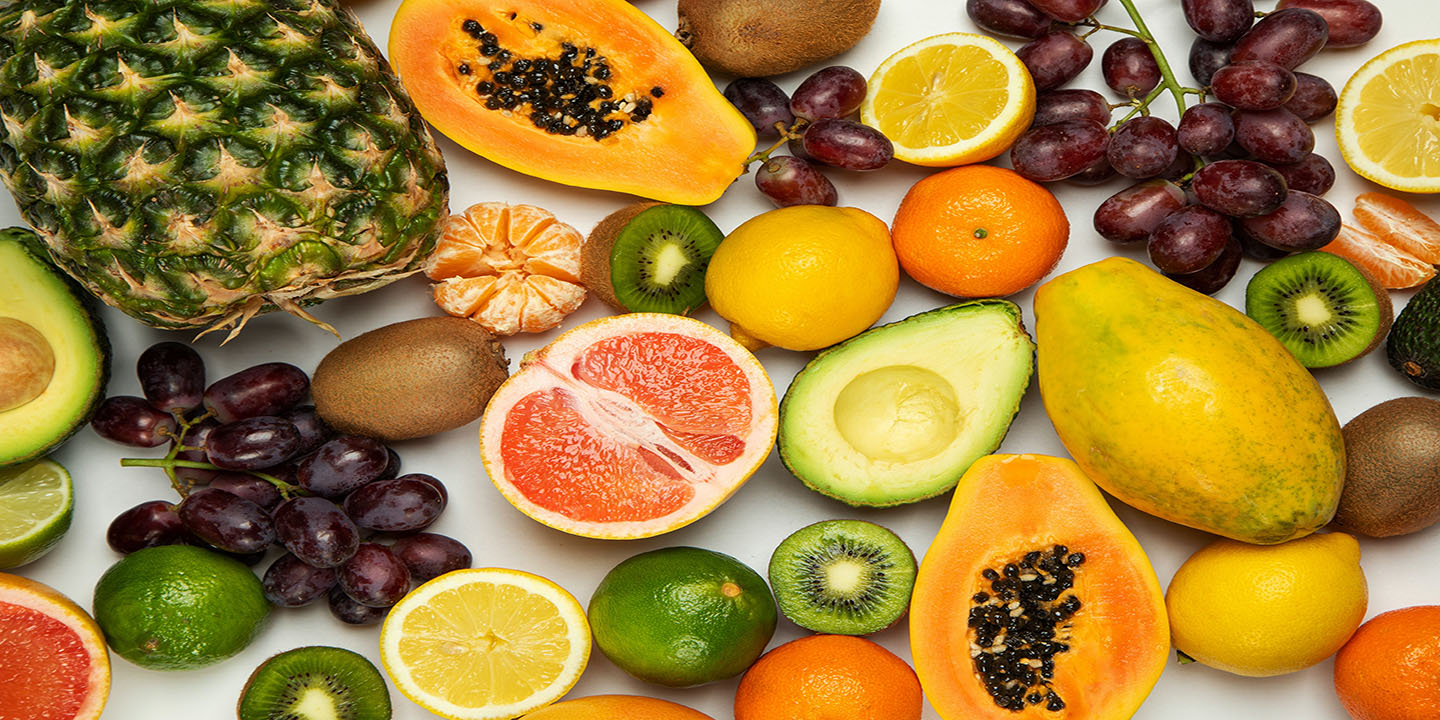10 Foods That Can Put You In A Bad Mood & 10 That Help Boost It
Did you know what you're eating might be affecting your mood too? Turns out there are plenty of different foods out there that can negatively or positively impact your health, whether it's anger, frustration, or more serious mental health issues like anxiety and depression. Here are 10 foods you're eating that might be putting you in a bad mood, and 10 that can help boost it.
1. High-Sodium Snacks
Foods high in sodium, such as chips and processed snacks, can affect your mood in many different ways. For one, it can lead to dehydration and imbalances in electrolyte levels which can cause headaches and irritability. But it's also been studied that higher salt intake might be related to depressive symptoms; people with lower sodium diets have shown positive impacts toward good moods.
 Image by Werner Weisser from Pixabay
Image by Werner Weisser from Pixabay
2. Deli Meats
Deli meats, which although are great sandwich fillings for your lunch, are often high in sodium and preservatives (such as nitrates) and can be affecting your mood without you even knowing. This might be because it increases your blood pressure and is tied to headaches and even mental health issues like anxiety.
 Image by Welcome to all and thank you for your visit ! ツ from Pixabay
Image by Welcome to all and thank you for your visit ! ツ from Pixabay
3. Vegetable Shortening
Vegetable shortening contains trans fat, which has actually been linked to an increased risk of anxiety and depression. The trans fats and omega-6 fatty acids found in vegetable shortening can interfere with the omega-3 fatty acids in the brain which are essential for mood regulation and brain health. The result? Potential mood disturbances and irritability.
 Science History Institute on Wikimedia Commons
Science History Institute on Wikimedia Commons
4. Artificial Sweeteners
Artificial sweeteners like aspartame have been linked to the disruption of neurotransmitters such as serotonin being produced in the body. These are crucial for mood regulation and when it's regularly affected like this, can lead to mood swings, headaches, anxiety, and depression.
 Evan-Amos on Wikimedia Commons
Evan-Amos on Wikimedia Commons
5. Alcohol
Although alcohol might seem to initially improve your mood when you're feeling down, the long-term effects can be quite the opposite. Regular and heavy alcohol consumption affects the central nervous system and can affect the brain so that you feel more negative feelings like anxiety, anger, and depression.
6. Caffeinated Beverages
Although you might love your morning coffee, too much reliance on caffeine can have a pretty negative effect on your mood. Excessive caffeine can cause nervousness, restlessness, and disrupt sleep patterns, especially in individuals sensitive to its effects. As a result, poor sleep quality can lead to decreased mood and well-being the following day.
7. Agave Nectar
Despite its natural origin and the mistaken assumption that it's a great health food, agave nectar is incredibly high in fructose, higher than many other sweeteners. This high fructose content can lead to mood instability, following quick energy spikes followed by rapid declines. This imbalance in blood sugar levels has been studied to lead to mood swings and irritability.
8. Refined Carbohydrates
Foods made with refined carbohydrates, like pastries and white bread, can cause rapid spikes in blood sugar levels followed by a crash. This blood sugar rollercoaster can result in irritability and fatigue, seriously impacting your mood.
 Image by congerdesign from Pixabay
Image by congerdesign from Pixabay
9. Fast Food
It's no surprise that regular consumption of fast food can lead to poor nutritional status, but did you know it can affect your mood too? If your body is unhealthy, it's been studied to also be linked to symptoms of depression and anxiety. Not to mention, the high content of unhealthy fats, sugar, and salt can also lead to energy crashes and mood swings.
 Image by Daniel Reche from Pixabay
Image by Daniel Reche from Pixabay
10. High-Fructose Corn Syrup (HFCS)
Found in many processed foods and beverages, HFCS can have negative impacts on your mental health and mood. When consumed in excessive amounts, it can cause fluctuations in blood sugar levels leading to mood swings, frustration, and fatigue, all components of a bad mood.
 Image by Aline Ponce from Pixabay
Image by Aline Ponce from Pixabay
1. Salmon
Salmon is rich in omega-3 fatty acids which are crucial for brain health and are known for influencing serotonin levels, helping with your mood regulation. These healthy fats can help reduce inflammation and promote better brain function, potentially reducing the symptoms of depression.
 Image by Robert Owen-Wahl from Pixabay
Image by Robert Owen-Wahl from Pixabay
2. Dark Chocolate
Dark chocolate has been studied to help relieve feelings of anxiety and irritability while promoting calmness, boosting our moods by increasing the levels of serotonin in the brain. It also contains flavonoids and theobromine, which work together to improve mood and alleviate stress.
 Image by jacqueline macou from Pixabay
Image by jacqueline macou from Pixabay
3. Spinach
Spinach is a leafy green packed with folic acid, a B vitamin that helps produce dopamine and serotonin in the brain. These neurotransmitters are the key to feeling happy and relaxed, making spinach a surprisingly good choice for mood-enhancement.
 Image by Aline Ponce from Pixabay
Image by Aline Ponce from Pixabay
4. Berries
Berries like strawberries, blueberries, and raspberries are high in antioxidants and vitamin C, which have been linked to mood improvement. They can help manage stress and reduce inflammation, leading to a happier state of mind.
 Image by Nicky ❤️🌿🐞🌿❤️ from Pixabay
Image by Nicky ❤️🌿🐞🌿❤️ from Pixabay
5. Nuts and Seeds
Nuts and seeds such as almonds, walnuts, and flaxseeds are excellent sources of magnesium, zinc, and selenium, along with healthy fats. They also contain an amino acid called tryptophan which is a mood-boosting serotonin great for helping you reduce symptoms of depression and anxiety.
 Image by PublicDomainPictures from Pixabay
Image by PublicDomainPictures from Pixabay
6. Greek Yogurt
Greek yogurt is high in calcium and protein, which can help regulate mood and emotions. It also contains probiotics, which are beneficial for gut health and have been linked to improvements in mood and mental health.
 Image by Aline Ponce from Pixabay
Image by Aline Ponce from Pixabay
7. Green Tea
Green tea has been studied to improve mood and brain function, likely thanks to L-theanine, an amino acid that can help reduce stress and promote relaxation without causing drowsiness. It also has a moderate amount of caffeine, which can improve alertness and mood.
 Image by Mirko Stödter from Pixabay
Image by Mirko Stödter from Pixabay
8. Eggs
Eggs are packed with vitamins D, B6, and B12, along with selenium and protein which are nutrients are vital for regulating mood and improving brain function. This great mood-boosting food option also has omega-3 fatty acids and amino acids that are known to help with anxiety.
9. Sweet Potatoes
Filled with fiber and complex carbohydrates, sweet potatoes can help you regulate blood sugar levels and your mood, ensuring that there's a steady supply of energy going to the brain. They're also rich in vitamin C, which has been linked to an improved mood.
 Image by Bernadette Wurzinger from Pixabay
Image by Bernadette Wurzinger from Pixabay
10. Oysters
Oysters are an excellent source of zinc, a mineral important for mood regulation and brain health. Zinc deficiency has been linked to mood disorders, so including zinc-rich foods like oysters in your diet can help enhance your mood.
KEEP ON READING

The Most Popular Signature Dishes Around the World











